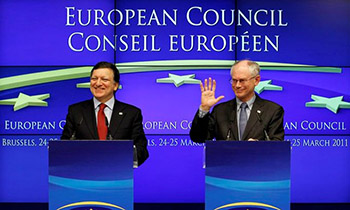Tax «Grey List»: Liechtenstein and Peru are excluded

The European Union has confirmed the full compliance of the Liechtenstein and Peru tax regimes with European standards
The EU, concerned with the tendency towards tax evasion, published in December, 2017 its own «black list» of countries with tax laws, which do not meet European requirements.
The emergence of the list was preceded by harsh criticism of the European Committee of PANA of the lack of real measures to combat low-tax countries.
The list includes 17 states, consolidating jurisdictions from South Korea to the United Arab Emirates.
In addition, the Council of Europe prepared the so-called «grey list» of 47 countries, which expressed willingness and intention to adhere to tax and information transparency, including Liechtenstein and Switzerland. The condition to bring domestic tax legislation in line with the European one was posed to them according to the following criteria:
- Developed countries are required to implement changes by the end of 2018,
- Developing countries are given a period of 24 months.
Remarkably that absence of visible promotions and changes in the above-mentioned countries will allow the leadership of Europe to move «violators» to the «black list».
As the main measure to influence the «black list» representatives, Europe applied a ban on access to its own territory, intending to exclude the transfer of funds from most international financial institutions: the European Development Bank, the European Regional Development Fund, etc.
Liechtenstein and Peru prematurely departed from the number of unreliable ones, having out-driven the majority of those included into the «black» and «grey» lists, which prepared the internal legal norms in accordance with the requirements.
The Economic and Financial Affairs Council, which updated the aforementioned lists, excluded these countries from the «grey list», confirming full compatibility with its own standards. Additionally, Palau, Bahamas, Saint Lucia, Bahrain, Saint Kitts and Nevis were transferred from the «black» to the «grey» list.
Let us remind you: Liechtenstein was charged with changing several dangerous tax regimes, while Peru was partially inconsistent with the European tax transparency regime.
Significant part of those listed takes the necessary measures to eliminate these restrictions, but the Council of Europe is preparing several precautionary steps, intending to prompt the need to expedite the implementation of the relevant changes.
Leading international economists point out that the European Union is excessively obsessed with small states and jurisdictions, disregarding the presence of major players in the global economy, which violate the European regimes: the United States and Great Britain.
The refusal to sign an agreement on the automatic exchange of information implies the inclusion of the US into the «black» list in 2019. Europe's requirement is to make the necessary changes to FATCA, the US Foreign Account Tax Compliance Act, defining the need to provide information from counter-parties to the US departments not sharing it.
BREXIT put in embarrassing position about 14 overseas British possessions, which take independent actions to be removed from the lists, in the conditions of inaction of the main dominion.
Given the above-mentioned, the activities of residents of offshore and other jurisdictions included in the lists, are questioned in Europe, confirming the seriousness of the European regulator intentions.





























































